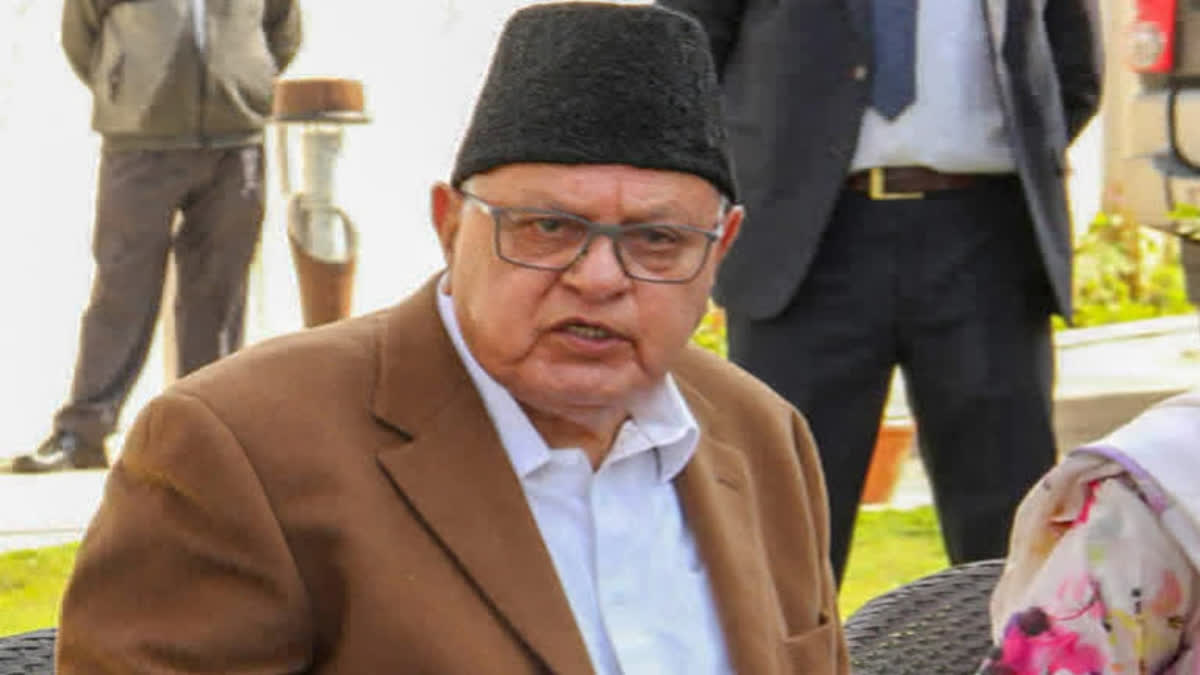Jammu: National Conference president Farooq Abdullah said Maharaja Hari Singh implemented Article 370 in 1947 stop people from Punjab from migrating to Jammu and Kashmir after partition and settle there.
"We didn't bring Article 370. This was introduced and implemented by Maharaja Hari Singh in 1947. It was only out of fear that the people of Punjab would come here after partition and settle down and the poor people of our state would sell their land at lesser rates," he said in Jammu.
According to Farooq Abdullah, the reason for Maharaja Hari Singh's introduction of Article 370 was to protect the locals of Jammu and Kashmir. "Maharaja Hari Singh brought Article 370 to save the poor people of Jammu and Kashmir after the partition. He reserved the jobs only for the locals of J-K and Ladakh. This was Article 370," Abdullah said.
The Supreme Court earlier in December 2023 upheld the Union Government's decision to abrogate Article 370 of the Constitution, which gave special status to Jammu and Kashmir. A five-judge Constitution bench comprising Chief Justice of India DY Chandrachud, Justices Sanjay Kishan Kaul, Sanjiv Khanna, BR Gavai, and Surya Kant delivered the verdict on petitions challenging the government's move to abrogate Article 370.
The top court said that it has held that Article 370 was a temporary provision. "The proclamation of Maharaja stated that the Constitution of India will supersede. With this, the para of Instrument of Accession ceases to exist... Article 370 was an interim arrangement due to war conditions in the State. Textual reading also indicates that Article 370 is a temporary provision," the Supreme Court said. It said that every decision taken by the Centre on behalf of a State can't be subject to a legal challenge and it will lead to the administration of the State to a standstill.
In August 2019, the Centre announced the revocation of the special status of Jammu and Kashmir granted under Article 370 and split the region into two union territories. The Supreme Court, in its verdict, said that assembly polls in Jammu and Kashmir should be held by September next year.
- " class="align-text-top noRightClick twitterSection" data="">
Read More



